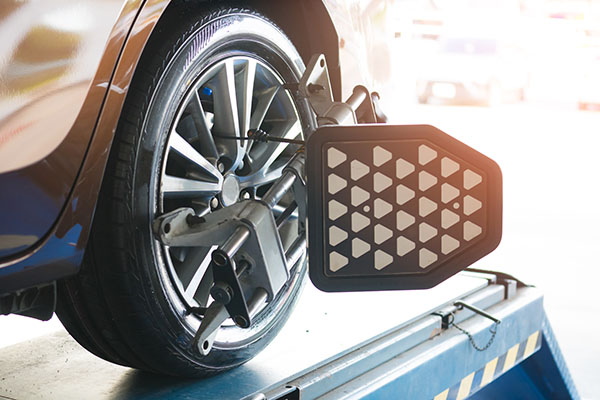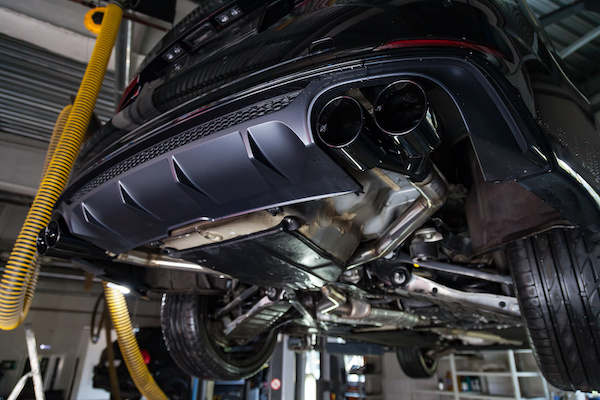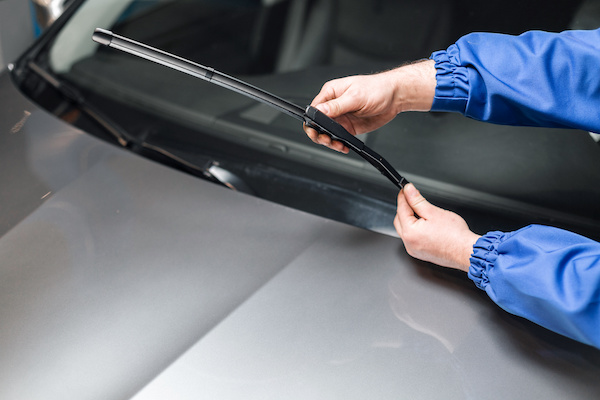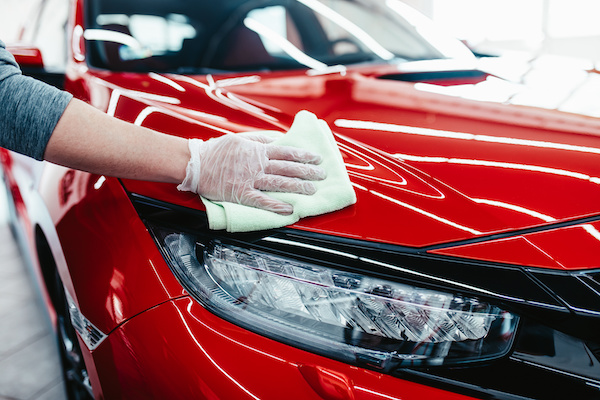Posted on 3/30/2023

Your car's wheels are essential for its stability and safety on the road. Over time, they can become misaligned, which can cause a variety of issues and damage to connected systems or components. That's why we will share five signs of bad wheel alignment so you know what to look out for. Spotting them in time can make a big difference, especially in the repair bill. 1. Uneven Tire Wear Tires wearing unevenly could indicate that your wheels are out of alignment. Check your tires for signs of wear, such as bald spots or cupping, and have them professionally inspected. If ignored, this can put extra stress on the brakes and other important parts. 2. Steering Wheel Vibration If you feel a vibration in your steering wheel while driving, it's probably caused by misaligned wheels. This vibration may be more noticeable at higher speeds, so if you have any suspicion about this, make sure to take notice next time you drive. 3. Crooked St ... read more
Posted on 2/28/2023

Exhaust repairs are an important aspect of a vehicle maintenance list that is often overlooked by car owners. Your vehicle's exhaust system is accountable for removing harmful gasses and pollutants from the engine, ensuring that your car runs smoothly and efficiently. In this blog, we will let you know how they work, why they are crucial for the health and longevity of your vehicle. What are Exhaust Repairs? Exhaust repairs are a set of services designed to repair or replace parts of your vehicle's exhaust system that have become damaged, worn out, or broken. This system includes a variety of components, including the exhaust manifold, catalytic converter, muffler, and exhaust pipes. Repairs can include everything from simple fixes, such as replacing a loose or damaged exhaust pipe, to more complex repairs - replacing the catalytic converter or muffler. How do Exhaust Repairs Work? Exhaust repairs work by identifying and fixing problems with ... read more
Posted on 1/30/2023

Clear vision and visibility on the road are crucial in the United States. Most states require that every motorist pass a vision test before they can renew their licenses. However, having a perfect sight does not guarantee a great view of the road ahead. Snow, dust, and rain can fog up your vehicle's windshield. That is where your windshield wiper blades come in. The back-and-forth swish of your vehicle's wiper blades clears these particles off the window ensuring better visibility. How Often Should You Replace your Windshield Wiper Blades? Most manufacturers recommend replacing your wiper blades every six to twelve months. However, how long your wiper blades last will depend on various factors, including the blade quality of the blade material and where you live. Professional mechanical technicians will inspect the condition of your wiper blades when you take your vehicle in for an oil change. This is one of the best ways to keep track of your blades and change them whe ... read more
Posted on 12/23/2022

Headlights are one of the essential parts of your car to keep clean. With a dirty headlight emitting a nasty glare in the eyes of other drivers, you may as well be driving a rolling wrecking ball. Let's look at the steps needed to clear hazy headlights. Cleaning Your Car's Headlights Step-by-Step Renew the debris surface Remove any dirt, dust, dead bugs, or crud that may have formed on the surface of your headlights by spraying them with a mild cleaner and gently wiping them down. Tissue dry After cleaning, wipe the surface with a dry cloth or towel until all moisture has been removed. Configure headlight restorer Give your headlight lenses a good amount of cleaner and apply it generously. If you use baking soda, make a thick paste by combining it with a bit of water. To let your lens cleaner dry a little, leave it on for a few minutes. Brush out cleaner to remove Work your brush softly around the surface of the headlamp in circular strokes. Take care not to scratch the p ... read more
Posted on 11/30/2022
.jpeg)
The modern car engine has evolved to be more powerful and more durable than it has ever been before. They are sophisticated and resistant to extreme temperatures, despite how cold or hot it is outside. However, negligence and poor-quality maintenance can still lead to the devastating effects of engine overheating. It is important to know how to handle such a situation in case it happens to you. What Causes Engine Overheating? There are various things that can cause your car to overheat. Most of the time, it comes down to the cooling system, which comprises many parts that help cool the engine. These include coolant fluid, water pump, radiator, and more. When these parts wear down or leaks occur, it can cause your motor to overheat. Additionally, a hot day can accelerate the likelihood of overheating. That is why we always recommend having an extra bottle of coolant fluid on hand. What to Do If Your Engine is Overheating First, you should know how to spot an overhe ... read more